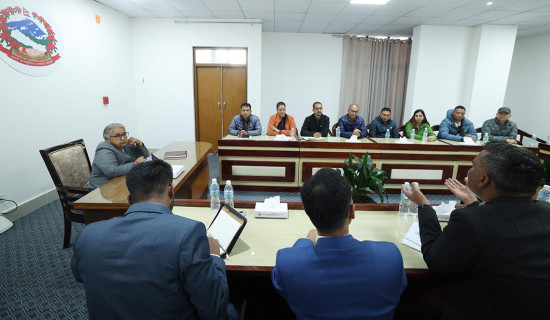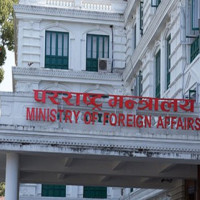- Monday, 1 December 2025
Global Events Hit Cross-border Lending
Banks will always have one tug of war while lending a balance between trust and belief. When crossing borders with their checked money, they are also loaning the capital. Cross-border lending is all about growth, and growth is about creating jobs and opportunity. Growth can start to lean on the word retrenchment when the geopolitical and market forces start to become chaotic. The turbulence associated with conflict, inflation, and massive and tumultuous tech changes sees banks feeling a bit more skeptical about their foreign investment strategy lately.
The Russia–Ukraine war was a good example of how quickly the risk and the erratic market change the rules of global finance. Because of the situation and scenarios, uncertainty would become the order of the day, and lenders would get more alert about operating in a politically unstable region. Due to sanctions, asset freezes, and alliances shifting, lending beyond the borders got a lot thicker than just gazing at the balance sheet. The result at the end to face in such scenarios shall be: bigger and established borrowers will fetch better access to lending, and in contrast, the smaller ones will have a hard time finding loans.
Trade sanctions
Another issue is trade sanctions. Over the past three years, it has been difficult to do business with Russia or businesses that are associated with it because of the law. To control the procedure, banks are spending a lot of money on demanding compliance and scrutinizing all payments in search of any issues. Even one error may cost them great fines or damage their reputation. There are so many banks that are opting to embark on lending smaller. This is one of the new market defense mechanisms that safeguard them but can also act as a way of cutting potential capital to emerging markets.
To top it all, the expense in the global industry is increasing, putting pressure. The increase in the prices of energy is devastating to the company's profit margins and creates concerns about default. In the case of banks, when the customers have difficulties with paying their heating bills, it is not a good idea to give them more loans; it is just wishful thinking. This leads to tightening of credit, an increase in risk, and the economic growth rate slows.
The technology provides banks with some additional time. The current algorithms allow lenders to search through volumes of data within seconds and thus risks are easier to identify. The role of AI is quite substantial, as it assists in making loans, detecting fraud, identifying risks, and even anticipating security threats with very high precision. Despite all this technology, there will always be the element of human emotions such as anger, sympathy, fear, greed and this needs to be taken into consideration because it can significantly affect the decision made.
Digital Banking and digital money continue to expand, yet nobody can find it all with algorithms. Cryptocurrency is a huge contradiction. On paper, cryptocurrencies such as Bitcoin, Ethereum, and meme coins are supposed to facilitate borderless transactions. They are very volatile and their guidelines are not clear, so risks persist all day. Banks take an interest in the basics of crypto; however, their engagement with it is like the wilderness: interesting yet dangerous.
Most importantly, the governments are the key players in the unpredictability. Regulations that aimed to ensure banks have larger capital buffers were aimed at preventing market crashes, but during difficult periods, they may cause a credit crunch. In times of disaster, like the COVID, the regulations were relaxed, allowing the economy to continue moving. The policy makers are attempting to walk the fine line between bailing out and warning.
In Nepal, the existing political instability has a significant impact on cross-border lending and domestic credit activities. The constant changes of government leadership, high levels of policy uncertainty, and long delays in enacting and implementing regulatory policies are forcing the banking institutions to become more cautious in extending loans more so to the SMEs and other emerging businesses.
Lending requirements
A strengthened financial position helps existing businesses to get financing and emerging businesses are often made to pass through tighter lending requirements. At the same time, the spread of fintech innovations and digital banking services in Nepal is breeding new financing channels, thus allowing the banks to hone the risk assessment process and swiftly streamline the loan issuance process. However, unremitting political instability is a substantive issue, which forces financial institutions to strike a compromise between stringent risk management activities and the need to promote general economic growth.
In the future, banks should be cautious, as well. They have a diminished appetite to take risks and instead concentrate on increasing technology and information that determine improved lending conditions. When conventional lending becomes stricter, digital banking innovations and new sources of financing for businesses could provide relief. The development of lending may be a decisive element in globalization than the lender. The financial world is being transformed by wars, crashes, technological changes and international conflict. Banks, governments and businesses are learning to get used to it in some cases unwillingly. The previous few years demonstrate that the field of finance does not cease - it changes.
(Neupane is a high school graduate.)

















